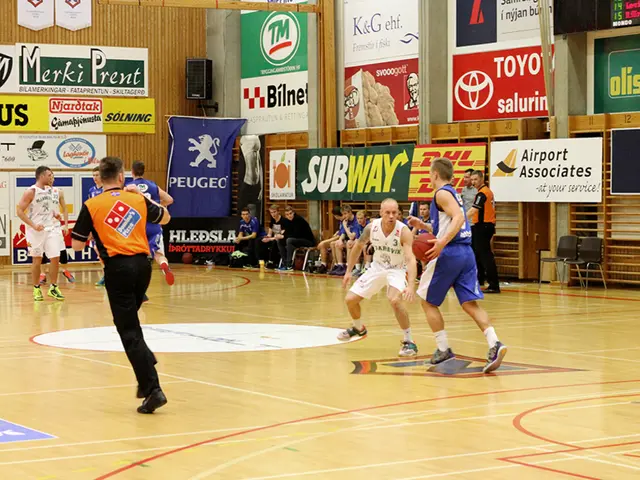Europe suggests trade measures against Israel and sanctions on ministers due to ongoing conflicts in Gaza
The European Union (EU) has announced it will freeze 20 million euros ($23.7 million) in support for Israel, marking the firmest attempt by the bloc to pressure the country over its offensive in Gaza. This decision comes in response to Israel's major ground assault on Gaza City, which has sparked international concern.
The EU's executive, led by Chief Ursula von der Leyen, has called for an immediate ceasefire in Gaza, unrestricted access for humanitarian aid, and the release of all hostages held by Hamas. The move is a response to the ongoing violence that has displaced about 40 percent of residents from Gaza City and resulted in the death of at least 64,964 people, according to figures from Gaza's health ministry. The UN considers these figures to be reliable.
The freeze in bilateral support will not include funds going to help civil society groups and Israel's Yad Vashem Holocaust memorial. However, the EU commission has called for asset freezes and visa bans on Israeli government ministers Itamar Ben Gvir and Bezalel Smotrich over their 'extremist' rhetoric. The Israeli government ministers associated with this rhetoric and actions intended to inflict maximum damage on Gaza have been linked to the International Criminal Court's ongoing investigation on crimes committed on Palestinian territory.
Notably, the Israeli government ministers criticized by the European Commission include Prime Minister Benjamin Netanyahu and former Defense Minister Yoav Gallant. Israel has criticized the EU's decision to freeze 20 million euros in support as 'morally and politically distorted'. Israeli Foreign Minister Gideon Saar has threatened an 'appropriate response' to any action against Israel.
The EU is pressing to suspend parts of a cooperation deal with Israel that allow for reduced tariffs on goods, which would affect more than a third of Israel's exports to the EU, worth around six billion euros. However, the proposed measures to cut funding to Israeli tech firms have already been stalled due to opposition.
Greece has warned that Israel risks 'alienating traditional allies and friends' with its actions. Pressure has mounted on the 27-nation bloc to act against Israel over its offensive in Gaza. Despite opposition from countries like Germany, Italy, and Greece, the EU's push for action against Israel represents a significant step in holding the country accountable. Irish foreign minister Simon Harris stated that today marks a critical turning point in this regard.
The UN has accused Israel of committing genocide, with Prime Minister Benjamin Netanyahu and other senior officials incited for the crime. The Israeli military estimates there are 2,000 to 3,000 Hamas militants in central Gaza City. The war between Israel and Palestinian Islamist group Hamas was sparked by Hamas's October 2023 attack on southern Israel.
As the conflict continues, the EU's decision to freeze funding and impose sanctions serves as a clear message to Israel, urging it to cease its offensive in Gaza and work towards a peaceful resolution. The EU's actions underscore the international community's growing concern over the humanitarian crisis in Gaza and the need for Israel to respect international law and human rights.
Read also:
- United States tariffs pose a threat to India, necessitating the recruitment of adept negotiators or strategists, similar to those who had influenced Trump's decisions.
- Weekly happenings in the German Federal Parliament (Bundestag)
- Southwest region's most popular posts, accompanied by an inquiry:
- Discussion between Putin and Trump in Alaska could potentially overshadow Ukraine's concerns








